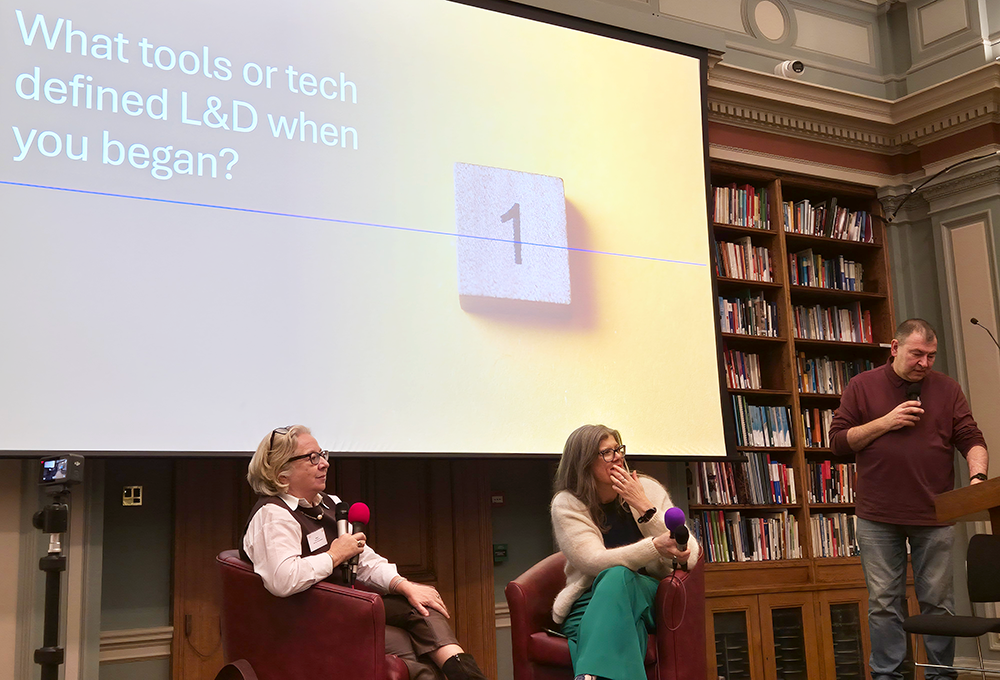Zoomed out? Nicholas Brice has some thoughts on how to re-engage yourself, and your audience.
Successful organisations are built on their ability to be resilient and agile in times of change. During challenging times authentic leadership can cultivate trust and improve employee engagement and performance.
This is because understanding and communicating the key challenges while adopting a supportive approach are the cornerstones to long-term success in a remote working world.
Presenting to a Zoomed-out audience
A recent research by Harvard Business School analysed emails and meetings of 3.1m people in 16 global cities. They found that the average workday had increased by 8.2% – or 48.5 minutes since the start of the pandemic. Employees now attend 13% more meetings, and the number of participants invited to each meeting rose by two, or 14% on average.
With the increasing screen fatigue, it’s more challenging to attract and hold an audience’s attention in the digital space. Therefore leaders need to adapt by finding creative ways to deliver their message and interact with their listeners.
Our facial expressions play a significant role in virtual presentations and so does using the power of silence.
Reading a virtual room and getting a sense of the energy of the audience’s response is much harder, and the feeling of disconnect can leave leaders even more anxious about speaking. This can lead to poor experience on both sides of the screen. Because when the speaker sounds disconnected, it makes it more difficult for the audience to listen.
Storytelling is an effective way to attract and retain the listener’s attention, and much more impactful compared to facts and data.
This is because our memories are more intensive and last longer. In fact, information is up to 20 times more memorable when shared in a story, as most people forget more than 40% of the information by the next day and 90% a week after.
We all know how to tell a story, but what makes a difference is being able to tell a story or give an illustration. And to tell the story well, making it relevant to the audience.
Non-verbal communication is also an essential part of speaking with impact. Our facial expressions play a significant role in virtual presentations and so does using the power of silence.
A composer would confirm that pauses are just as important as the music itself, and similarly, intentional silence draws emphasis – either on what has just been said or what’s coming next. Thus, giving the audience the space and time to think of their own interpretation.
Bringing your authentic self to the table
Leaders can’t fully predict how the current crisis will impact their teams, but they can be prepared to bring their best leadership selves to the table to deal with it. How people feel about their work is only partly about their actual work. More importantly it’s about how they see their work – do they perceive it as a mindless task, or do they feel connected to the bigger picture?
Communicating with impact and with a sense of the higher purpose of work can motivate teams to think and act more collaboratively and connect their input with complex business needs. Leaders can also lower employees’ sense of uncertainty by communicating confidence in the future of the business.
They can also transmit their confidence in the team’s ability to contribute to the success, which in return drives increased productivity levels. This can be a strong motivator.
Leaders should never assume that their teams will automatically follow their lead because of the formal power of their roles. They need to be able to inspire and motivate their teams by communicating a compelling vision to shape the way their teams think, which is a critical step in changing the way they act.
A leader with the skill to speak with soul has the power to present new perspectives, influence the mindsets of others and create emotional connections. By strategically sequencing facts and emotions, leaders can motivate and empower others, and lead more authentically.
About the author
Nicholas Brice is CEO of Soul Corporations.




